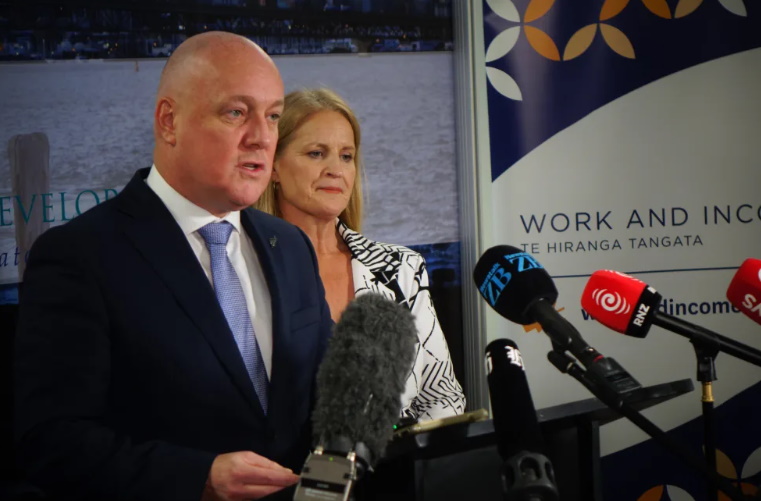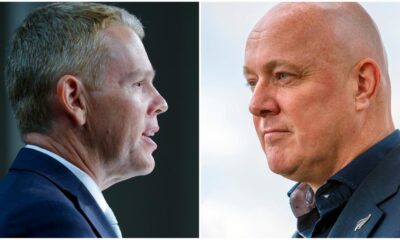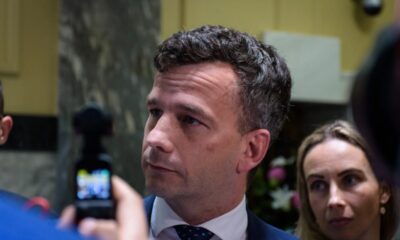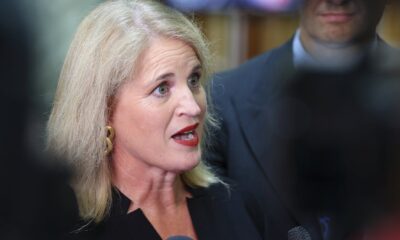Politics
Hundreds of Disabled Teens Face Jobseeker Benefit Cuts

In a significant policy shift, the government plans to terminate Jobseeker benefits for many 18- and 19-year-olds with health conditions or disabilities. Official data indicates that around 4,300 young individuals could lose their support as the government adjusts its welfare program, citing the need to encourage employment.
The new rules will specifically affect those whose parents earn more than $65,000 annually, leaving many vulnerable teenagers without financial assistance. A spokesperson from the Ministry of Social Development revealed that as of the end of June 2025, there were 2,685 beneficiaries aged 18 and 19 receiving the Jobseeker Support Health Condition Disability benefit. The exact number of those whose parents earn less than the threshold remains unclear.
During a parliamentary session on Wednesday, Green Party co-leader Chloë Swarbrick questioned Prime Minister Christopher Luxon about the implications of the cuts, particularly for those “who may be disabled, sick or experiencing severe mental ill health.” Luxon responded by stating that eligibility for Jobseeker benefits implies an individual’s capability to work, prompting Swarbrick to express her frustration, stating, “You don’t understand the question.”
The Prime Minister further defended the government’s actions, asserting that the administration is “unapologetically” promoting pathways for young people into work, training, or education. In a similar vein, Social Development Minister Louise Upston supported the policy’s inclusion of those with health issues, asserting they are impacted by “temporary conditions.” Upston expressed confidence that these individuals would be able to transition into employment or education within a two-year timeframe.
While Upston emphasized the expectation for parental support, she acknowledged that those with permanent disabilities should apply for the Supported Living Payment instead. She expressed surprise at the notion that parents would not support their children, regardless of health status.
In contrast, Ricardo Menendez March, the Green Party’s spokesperson for social development, criticized the government for its approach, arguing that the changes disproportionately affect young people, particularly those facing health challenges. He suggested that the government’s focus on cutting income support fails to address the underlying issue of job availability.
The debate surrounding these welfare changes highlights a growing concern about the impact on vulnerable youth and the government’s responsibility to provide adequate support during challenging circumstances. As the policy unfolds, the implications for affected teens and their families will become increasingly apparent.
-

 Sports1 month ago
Sports1 month agoNetball New Zealand Stands Down Dame Noeline Taurua for Series
-

 Entertainment1 month ago
Entertainment1 month agoTributes Pour In for Lachlan Rofe, Reality Star, Dead at 47
-

 Sports1 month ago
Sports1 month agoSilver Ferns Legend Laura Langman Criticizes Team’s Attitude
-

 Entertainment1 week ago
Entertainment1 week agoNew ‘Maverick’ Chaser Joins Beat the Chasers Season Finale
-

 Entertainment2 months ago
Entertainment2 months agoKhloe Kardashian Embraces Innovative Stem Cell Therapy in Mexico
-

 Sports2 months ago
Sports2 months agoGaël Monfils Set to Defend ASB Classic Title in January 2026
-

 World3 months ago
World3 months agoPolice Arrest Multiple Individuals During Funeral for Zain Taikato-Fox
-

 Politics2 weeks ago
Politics2 weeks agoNetball NZ Calls for Respect Amid Dame Taurua’s Standoff
-

 Entertainment3 weeks ago
Entertainment3 weeks agoTyson Fury’s Daughter Venezuela Gets Engaged at Birthday Bash
-

 Sports3 weeks ago
Sports3 weeks agoHeather McMahan Steps Down as Ryder Cup Host After Controversy
-

 Entertainment3 weeks ago
Entertainment3 weeks agoTyson Fury’s Daughter Venezuela Gets Engaged at Birthday Bash
-

 World2 weeks ago
World2 weeks agoNew Zealand Firefighters Plan Strike on October 17 Over Pay Disputes



















